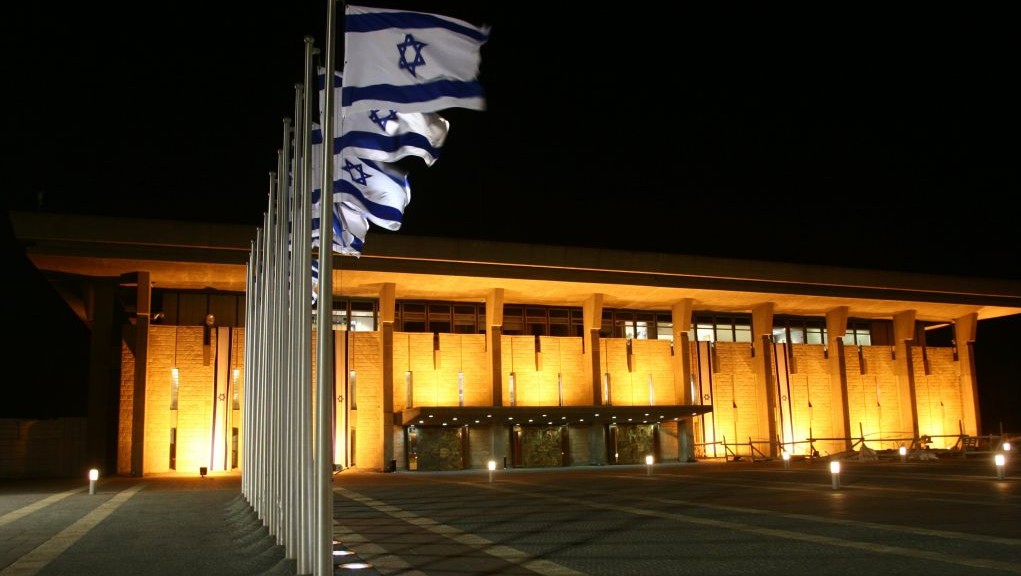IN THE MEDIA
Jerusalem move is right for Australia
October 19, 2018 | Colin Rubenstein

An edited version of this piece appeared in the Melbourne Age on Oct. 19, 2018.
Prime Minister Scott Morrison’s announcement that the government will explore the possibility of Australia recognising Jerusalem as the capital of Israel and consider relocating Australia’s embassy from Tel Aviv is a courageous, measured and principled decision that serves Australia’s most basic national interests.
Moreover, it is a logical step in the Australia-Israel relationship which reaffirms Australia’s commitment to an Israeli-Palestinian peace based on two states for two peoples and explicitly leaves the door open for the Palestinians to establish their own capital in eastern Jerusalem, if future negotiations produce such an outcome.
The primary problem, however, in recent years has been the very refusal of Palestinian leaders to enter negotiations and efforts to instead achieve their state through a unilateralist, international strategy that includes attempts to delegitimise Israel. This follows their refusal to accept any of the far-reaching Israeli offers for statehood over the last eighteen years, all of which have included sharing Jerusalem as the capital for both countries.
Besides predictable and cynical jibes regarding the timing of the announcement close to the Wentworth by-election, criticism of the announcement has centred around two principal assumptions.
First, it has been argued, recognising Jerusalem as Israel’s capital and/or moving Australia’s embassy would harm Australia’s relationships with Arab and Muslim countries, particularly in matters of trade.
Secondly, detractors claim that such a move would damage hopes for Israeli-Palestinian peace and violate some sort of international consensus that recognition of Jerusalem as Israel’s capital should be withheld until the two-state vision is realised.
In reality, both assumptions are absolutely wrong.
To be sure, a number of Arab and Muslim diplomats have joined the Palestinians in criticising the announcement, and mentioning trade as a possible casualty of such a policy shift.
However, an examination of trade data between the US and Arab and Muslim states since President Donald Trump’s announcement in December 2017 of his decision on this issue and subsequent move of the US Embassy to Jerusalem shows no evidence that the announcement had any negative effect on US trade with most Arab and Muslim countries.
Quite the contrary. According to US government statistics, since Trump’s announcement last December, US exports to Egypt have increased by 93.7 percent in the following eight-month period, while exports to Qatar soared by 85.5%, Morocco 22.9% and Lebanon, 16 percent.
What was the response of Australia’s neighbour Indonesia’s, home to the world’s largest Muslim population? There, too, since Trump’s announcement, imports from the US have increased by 37.9%.
While these numbers may seem surprising to some, they shouldn’t be. No country’s position on Israel or the Palestinians would be expected to be placed ahead of domestic national interest.
As Federal Trade Minister Simon Birmingham argued regarding the resilience of Australia’s trade ties with Indonesia, you “don’t… expect that two nations will always agree in terms of foreign policy positions as they relate to a third nation. But that shouldn’t get in the way of a strong bilateral relationship.”
Similarly, claims that there is something diplomatically improper about recognising Israel’s sovereignty in west Jerusalem or moving our embassy there has no historical basis. Back in 1966, 20 countries, including the Netherlands, located their Embassy to Israel in Jerusalem. Israel’s capture of east Jerusalem from Jordanian control the following year did not have a major short-term impact on this figure, though the Arab oil embargo of the 1970s and feeble defence by the US Carter Administration against Palestinian pressure at the UN on this issue in 1980 eventually led to an embassy flight. However, since 1995 it has been US law to recognize Jerusalem as Israel’s capital and move the US Embassy to Jerusalem, mandates that the Trump Administration has boldly implemented.
Moreover, there is a strong case to be made that an Embassy move may help unlock the current peace process deadlock. The Palestinian side has openly refused to negotiate for the last several years, and the US Embassy move has been part of a range of measures under a strategy by the Trump Administration to break through the current impasse by signalling to the Palestinian leadership that such intransigence has a price and time is not on their side. Australia’s bipartisan policy of supporting a negotiated two-state peace would be best served by doing what we can to assist these efforts to encourage a return to direct negotiations.
Meanwhile, most Arab states are more likely to welcome PM Morrison’s review of our outdated support for the flawed Iran nuclear deal and efforts to confront Iranian aggression more broadly than be angry about a possible Jerusalem embassy move. The Iranian threat has in recent years brought about a strategic realignment in the region, particularly behind the scenes, and the Iran issue weighs far more heavily in Arab capitals than what city Israel chooses to make its own capital.
It should be further recognised that the PM’s reviews of both the Iran and Jerusalem issues will also be well received by our most important strategic ally in Washington – a critical national interest consideration at a time when Australian security and economic concerns vis-a-vis North Korea and China loom larger than ever.
Prime Minister Morrison, who has reaffirmed his decision to evaluate the potential policy shifts in the face of misplaced criticisms and intense pressure, should be commended for his tenacity and his unwillingness to buckle under threats both foreign and domestic.
Dr. Colin Rubenstein is executive director of The Australia/Israel & Jewish Affairs Council.
Tags: Australia, Iran, Israel, United States





